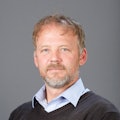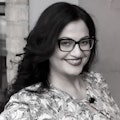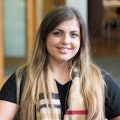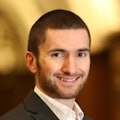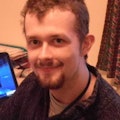Mathematics Education Research Group
We are focused on developing and evaluating new modes of learning and teaching mathematics in response to ongoing social and technological change.
The Mathematics Education Research Group is focused on developing and evaluating new modes of learning and teaching mathematics in response to ongoing social and technological change.
The group is interested in advancing the theory and practice of university mathematics education, actively gathers evidence to assess the effectiveness of different modes of teaching, and serves to support teachers and lecturers to develop their scholarship of learning and teaching.
We work closely with Athena SWAN and the Equality Challenge Unit to ensure that inclusivity and equality are properly considered when designing and assessing educational interventions. We collaborate with colleagues across Cardiff University, for example the School of Physics and School of Biosciences, and participate extensively with the University’s Academic Practice Programme.
We also engage with national networks such as the Higher Education Academy and the sigma network, and collaborate with institutions across the sector including Bath, Edinburgh, Loughborough, Newcastle and Sheffield Hallam.
Aims
The central question is: How can we facilitate effective learning in mathematics?
Research
Broad areas of interest
- Student academic engagement and fostering active learning environments
- This incorporates encouraging students to attempt problems, share and discuss ideas, self-reflect and develop their own approaches to solving problems.
- Particular approaches identified include peer instruction (using "clickers" in large groups or students discussing questions in small groups during lectures), peer-assessment, online forums.
- Use of learning technology in teaching
- Questions include how can this be used effectively, and how do we evaluate its usefulness?
- Particular approaches identified include flipped learning, e-assessments, lecture capture, and the design and use of open source software
- Developing essential graduate skills
- Particular skills identified are literacy and communication, problem-solving
Specific areas of interest
- Provision of Mathematics Support across the university
- Supporting the transition from school to undergraduate level
- Personality dimensions and their effects on learning Math anxiety and the impact of mathematical confidence on learning.
- Innovative approaches to lecturing - e.g. the role of (lecturers’) performance in the quality of learning
- The analysis of student survey data
- Work-based learning
- People
Meet the team
Events
Seminars and workshops
The seminar/workshop programme is a combination of external and internal speakers. The ‘internal’ sessions will be Learning and Teaching Lunches which will typically start with a 15-20 minute presentation leaving the remaining time for discussion and debate.
These will be held at 14:10 on Fridays in M/1.02 unless otherwise stated.
Programme organisers and contacts are Dr Rob Wilson and Dr Mathew Pugh.
Date | Speaker | Seminar |
|---|---|---|
7 February 2020 | Scholarship Workshop | Programme-level Outcomes This discussion session will review the current programme-level outcomes for the undergraduates degrees within the School of Mathematics. |
14 February 2020 | Daniel Gartner (School of Mathematics) | TBC |
21 February 2020 | Kevin Houston (Leeds) | TBC |
13 March 2020 | Scholarship Workshop | Maths Teaching Showcase |
27 March 2020 | Tony Croft (Loughborough) | TBC |
Past events
Date | Speaker | Seminar |
|---|---|---|
4 October 2019 | Michael Willet and Emmajane Milton (School of Social Sciences) | Quescussion In this short, interactive session, we will discuss an innovative approach that can be used to inspire and engage students in small-group teaching sessions; Gedalof’s (2005) ‘Quescussion’ (a discussion activity consisting entirely of questions). This is a student-centred activity which promotes equality and fosters the development of critical thinking skills. While this method was originally developed for teaching English Literature in Higher Education, we aim to explore with you whether its scope is transferable outside a humanities and social-sciences context, because of the very nature of the what it is trying to achieve – criticality, a questioning stance, independence and autonomy |
24 October 2019 | Scholarship Workshop | Student Engagement This discussion session will explore what factors contribute to student engagement with their academic studies within mathematics, and what specific areas of scholarship the MERG group should focus on over the coming academic year. |
31 October 2019 | Matthew Inglis (Loughborough) | Five decades of mathematics education research Mathematics educators have been publishing their work in international research journals for five decades. How has the field developed over this period? In this talk I report an analysis of the full text of all articles published in Educational Studies in Mathematics and the Journal for Research in Mathematics Education since their foundation. Using Lakatos’s notion of a research programme, I focus on the field’s changing theoretical orientations, and pay particular attention to the relative prominence of the experimental psychology, constructivist and sociocultural programmes. I quantitatively assess the extent of the ‘social turn’, observe that the field is currently experiencing a period of theoretical diversity, and identify and discuss the ‘experimental cliff’, a period during which experimental investigations migrated away from mathematics education journals. |
7 November 2019 | Scholarship Workshop | Open Session This open session will provide opportunity to share current examples of effective learning and teaching practice, to discuss plans/ideas for forthcoming practice and to explore/enquire about potential enhancements in future practice. |
14 November 2019 | Geraint Palmer (School of Mathematics) | Assessing a Preliminary Year Data Literacy Module The assessment method for MA0004 Preliminary Mathematics is changing, the module will now be 100% coursework. This provides freedom to realign the focus of the module to more practical aspects of data literacy. I will discuss the module itself, pros and cons of the previous assessment method, rationale for and details of the new assessment, and how the module schedule will realign to place more emphasis on these projects. I hope to use this time to listen to participants' opinions on this, and discuss fine-tuning the new model. |
5 December 2019 Begins 14:00 | Scholarship Workshop | What is a Pass? This discussion session will explore what we understand by 'passing a module', and how we might characterise what this should mean or look like, particularly within mathematics. |
Mathematics Education Research Group Seminars and workshops 2017-18 (PDF)
Schools
Next steps
Research that matters
Our research makes a difference to people’s lives as we work across disciplines to tackle major challenges facing society, the economy and our environment.
Postgraduate research
Our research degrees give the opportunity to investigate a specific topic in depth among field-leading researchers.
Our research impact
Our research case studies highlight some of the areas where we deliver positive research impact.
